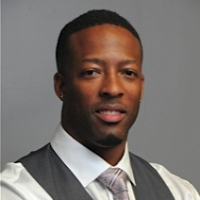 Broad Brook DUI-DWI Lawyers, Connecticut
Broad Brook DUI-DWI Lawyers, Connecticut
Sponsored Law Firm
-
 x
x

Click For More Info:
-
Keches Law Group
122 Dean Street Taunton, MA 02780» view mapSocial Security, Personal Injury, Workers Comp. Protecting Your Rights
Our team of experienced personal injury attorneys has over 130 years of combined experience representing individuals and families injured due to the negligence of others.
800-713-8650
Sponsored Lawyers
1-3 of 3 matches
Car Accident, DUI-DWI, Slip & Fall Accident
Donald is orginally from Chicago, Illinois. He is 2003 graduate of Mississippi State University (MSU). He received his Masters in Public Policy Administration from MSU in 2005, and went on to earn his law degree from the University of Wyoming College of Law in 2009. Donald's practice areas are criminal defense, including felonies, misdemeanors, DWIs and other motor vehicle violations. Donald is also contract public defender for the state of Connecticut, where he handles child support contempt defense and modifications. He also has experience handling personal injury matters, including motor vehicle accidents and slip-and-falls. He is admitted to practice before the Connecticut state courts as well as the U.S. District Court, District of Connecticut, and Connecticut's Bankruptcy Courts. Donald is a member of the Cawford Bar Association, and Connecticut Bar Association. Donald's hybrid barbershop/ law office, "Legal Cuts" has been featured by several news organizations including the Connecticut Law Tribune, NPR (radio), The American Bar Association, and The New Britain Herald.
(more)Criminal, Misdemeanor, Felony, DUI-DWI, Motor Vehicle
Attorney John F. O’Brien has over 30 years of experience as a criminal defense lawyer. We’ve been protecting people’s rights in Hartford, CT since 1986. We have offices conveniently located across from the Manchester and Rockville courthouses. However, we service a number of courthouses, including but not limited to, Bristol, Enfield, Hartford, Manchester, New Britain, and Rockville. We also do jail and home visits. If you’re in need of a criminal defense lawyer, DUI attorney, trial lawyer or personal injury lawyer, give us a call today. We’d be happy to discuss your case with you. We handle your legal emergencies 24 hours a day, seven days a week. If you or your loved one is arrested for a DUI or needs a criminal defense attorney, we can help. Call us today and get the representation you need and deserve. We will fight for your rights. If you’re in need of a criminal defense lawyer, DUI attorney or a trial lawyer, don’t hesitate to give us a call. We’ve been protecting people’s rights in Hartford, CT since 1986, and we’d be happy to discuss your case with you. We also handle personal injury cases. John F. O’Brien promises you straight answers you can understand, practical advice you can follow, honest fees you can afford, and aggressive representation you can count on.
(more)


 Sean Flaherty Taunton, MA
Sean Flaherty Taunton, MA AboutKeches Law Group
AboutKeches Law Group Practice AreasExpertise
Practice AreasExpertise


